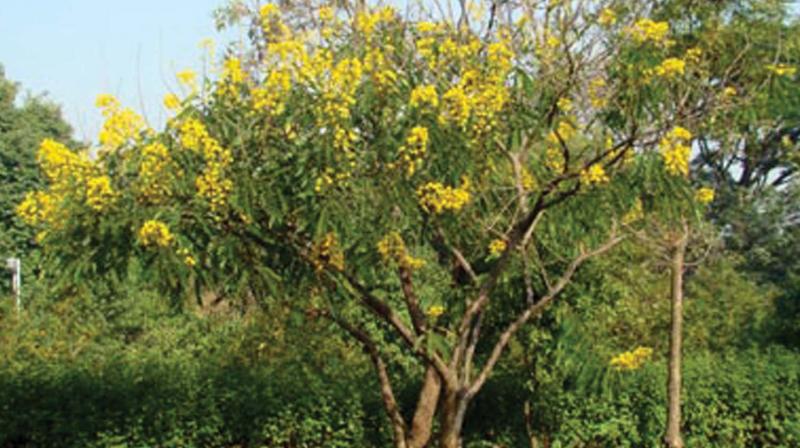Alien plants spread in WWS

Kalpetta: The uncontrolled spread of alien plant species is forcing animals to invade farmlands in search of fodder, say activists.
About half a dozen species are spreading in the jungle of Wayanad despite the futile efforts of the forest department.
A forest official who preferred anonymity said the entire forest would be invaded by such plants shortly. Animals do not eat them due to ill taste.
As per a report submitted by the WWS to headquarters, four alien species are the most threatening to the ecosystem. They are Senna Spectabilis, a tree species belonging to the family Fabaceae (subfamily Caesalpiniaceae), Lantana (Lantana Camara), Eupatorium (Chromolaena Oodorata) and Mikenia (Mikania Micrantha)
In ideal conditions, Senna Spectabilis can grow up to a height of more than 20 metres and its propagation is mainly through seeds.
The tree is capable of invading natural habitats, grow into thickets and displace indigenous flora.
At present a significant part of WWS is infested with this alien invasive species, says the report.
Introduced as avenue trees in Wayanad decades ago, now the forest department is exploring ways to eliminate them.
Another variety of Eupatorium prevents other species. Wherever introduced, it becomes aggressive and invasive.
It forms dense thickets, choking out all other vegetation. Chemicals in the leaves and stems suppress the growth of other plants.
It affects the overall productivity of the forest ecosystem. The eupatorium weeds have invaded 80% of the total Sanctuary area.
Mikania Micrantha is a perennial creeper known for its vigorous and rampant growth. A single stalk of mikania can produce 20,000 - 40,000 mature seeds in one season.
The growth of young plants is extremely fast (8 - 9 cm in 24 h) and, it rapidly forms a dense cover over entangled leafy stems using trees as support.
Wayanad Prakriti Samrakshana Samithy president N. Badusha allege, apart from few forest officials, neither the department nor the government agencies take the issue seriously.
"On unofficial information, more than 20 alien plant species have already invaded the jungle, forcing animals to come out for fodder and water," he told DC.
"Among the total 1000 square kilometre forest of Wayanad, about 300 square kilometre constitutes monoculture plantations of teak, Eucalyptus and acacia which is not a good habitat."
Though the forest department had an attempt to pull out the alien species, they are still spreading.
"Total elimination of the weeds from the ecosystem is the lone way to save the jungles," an official told DC.

